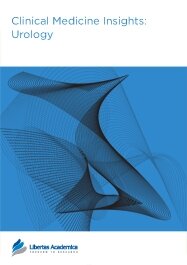

Publication Date: 01 Oct 2009
Type: Original Research
Journal: Clinical Medicine Insights: Urology
Citation: Clinical Medicine: Urology 2009:3 1-8

Background: Ureteral catheters are valuable indispensable devices may readily acquire biofilms on the inner or outer surfaces. This study evaluated the efficacies of ureteral catheters impregnated with ciprofloxacin, N-acetylcysteine each alone and in combination on microbial adherence.
Methods: Antimicrobial durability of ureteral catheters coated, through instant dip method, with ciprofloxacin were determined using modified Kirby-Bauer method. Ciprofloxacin-coated catheters showed zones of inhibition ranged from 15 to 45 mm in diameter (baseline) against nine clinical strains recently isolated from patients undergoing ureteral stent removal. Segments coated with ciprofloxacin, N-acetylcysteine each alone and in combination, through instant dip method, were incubated with the tested microorganisms, washed, sonicated, cultured and the number of viable cells were determined.
Results: Ciprofloxacin-coated catheters soaked in urine and incubated at 37 °C, maintained antimicrobial activities and produce zones of inhibition that measured 2–10 mm for at least 8 weeks. Effect of ciprofloxacin and N-acetylcysteine coated catheters on microbial adherence were found to be dose dependent. Catheters impregnated with ciprofloxacin/N-acetylcysteine showed the highest inhibitory effect on microbial adherence when compared with controls (85.5%–100%).
Conclusion: Catheters impregnated with ciprofloxacin, using instant dip method, were shown to have broad spectrum, prolonged antimicrobial durability and high efficacy. On the other hand, Catheters impregnated with ciprofloxacin/NAC showed the highest inhibitory effect on microbial adherence to stent surfaces.
PDF (2.80 MB PDF FORMAT)
RIS citation (ENDNOTE, REFERENCE MANAGER, PROCITE, REFWORKS)
BibTex citation (BIBDESK, LATEX)

Publishing with Clinical Medicine Insights: Endocrinology and Diabetes was a great experience. The editors were prompt in updating me with information regarding the status of the manuscript, and answering all questions I had during the publication process. I was pleased with how little time it took from submission to publication.
Facebook Google+ Twitter
Pinterest Tumblr YouTube